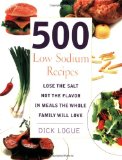|
Sodium, along with potassium, regulates the fluid balance and is important for the muscle and nerve functions.
Sodium: In depth
The human body contains ca. 70 g of sodium. A third of the sodium is stored in the bones and can be released into the blood if there is a deficiency.
Sodium determines the volume and pressure of the body's fluids outside of the cells, e.g. the fluidity of the blood and regulates the water balance of the body along with potassium. In addition to this, sodium plays an important role in the transmission of nerve impulses and is important for the acid-base balance.
Sodium: Requirement, deficiency, oversupply
Recommended intake of sodium according to the DGE* |
Age |
Male |
Female |
19 - 25 |
550 mg |
550 mg |
25 - 51 |
550 mg |
550 mg |
51 - 65 |
550 mg |
550 mg |
over 65 |
550 mg |
550 mg |
* DGE = Deutsche Gesellschaft für Ernährung - a German Nutrition Society
Extreme sweating and diarrhoea can lead to a sodium deficiency which eventually causes dehydration of the body as well as malfunctioning of the kidneys and muscles. Cramps in the calves are usually the first indications of a sodium deficiency. A strict diet excluding salt can be extremely harmful to your health.
If too much cooking salt is consumed, the body will excrete the sodium through the kidneys. However calcium is always excreted at the same time.
Too much salt can lead to high blood pressure, especially if you react to
sodium. It can also lead to oedemas (fluid retention in the tissue).
top  |
Sodium in foods:
Sodium is usually consumed in the form of cooking salt (NaCl). The amount of salt consumed daily by most people is usually a lot more than necessary. Salting foods and the salt content of certain foods such as cheese, sausages, ready made stocks, tinned foods and ready made meals all contribute to a high intake of salt.
Sodium in 100 g food:
Pretzels: 1790 mg
Cornflakes: 938 mg
Mustard: 1307 mg
Greek Olive Oil: 3288 mg
Potato crisps: 450 mg
Feta: 1300 mg
Cheese: 300 - 1500 mg
Salted herring: 5900 mg
Sausage: 500 - 2000 mg
top 

The No-Salt, Lowest-Sodium Cookbook

500 Low Sodium Recipes: Lose the salt, not the flavor in meals the whole family will love, Dick Logue
top  |

